#Major Samuels
Text









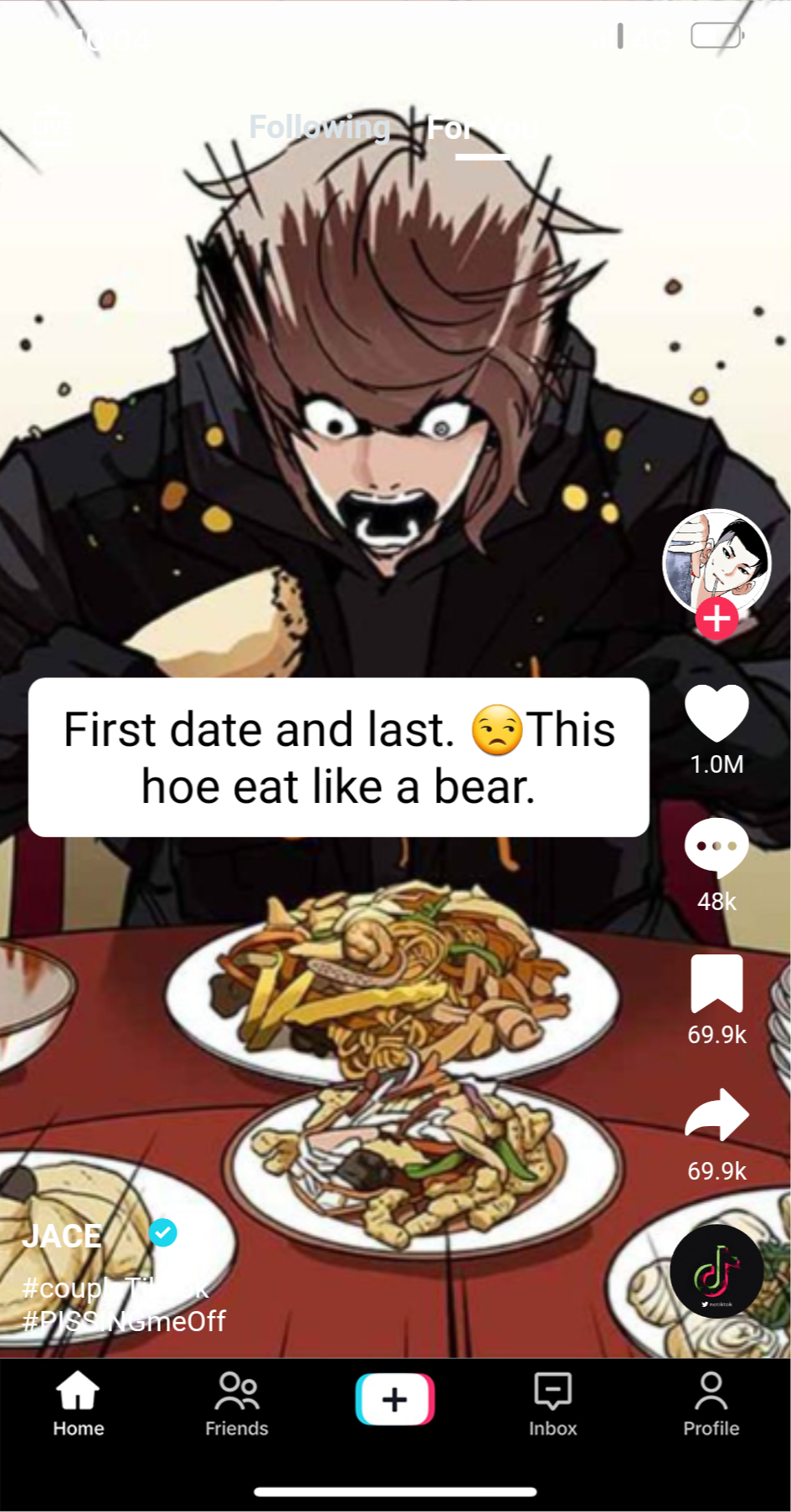
succumbed to the brainrot ...
#i need to be beaten an inch from death#lookism#lookism webtoon#lookism manhwa#lookism shitpost#lookism shitposting#lookism headcanons#lookism textpost#jake kim#kim gimyung#eli jang#jang hyun#seong yohan#johan seong#samuel seo#seo seongun#wang ochun#olly wang#johan lookism#lookism crewheads#lookism 4 major crews#warren chae#chae wonseok#jace park#park jiho#daniel park#gun park
299 notes
·
View notes
Text
"I Wish To Ask You A Question," said the golem.
"Yes?"
"I Smashed The Treadmill But The Golems Repaired It. Why? And I Let The Animals Go But They Just Milled Around Stupidly. Some Of Them Even Went Back To The Slaughter Pens. Why?"
"Welcome to the world, Constable Dorfl."
"Is It Frightening To Be Free?"
"You said it."
"You Say To People 'Throw Off Your Chains' And They Make New Chains For Themselves?"
"Seems to be a major human activity, yes."
Dorfl rumbled as he thought about this. "Yes," he said eventually. "I Can See Why. Freedom Is Like Having The Top Of Your Head Opened Up."
"I'll have to take your word for that, Constable."
Terry Pratchett, Feet of Clay
#dorfl#samuel vimes#sam vimes#feet of clay#discworld#golems#freedom#free will#oppression#questions#psychology#human nature#philosophy#meaning of life#welcome to the world#is it frightening to be free#a major human activity
239 notes
·
View notes
Text
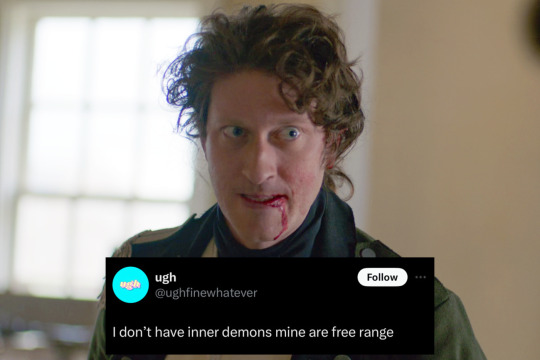
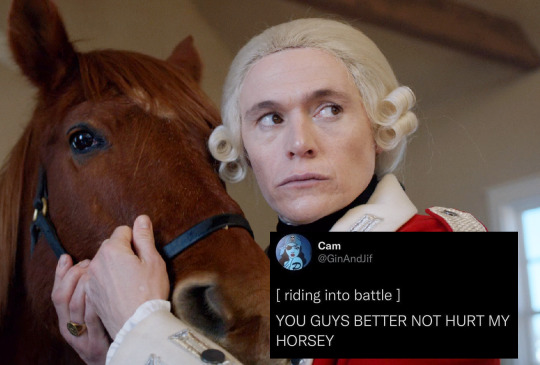
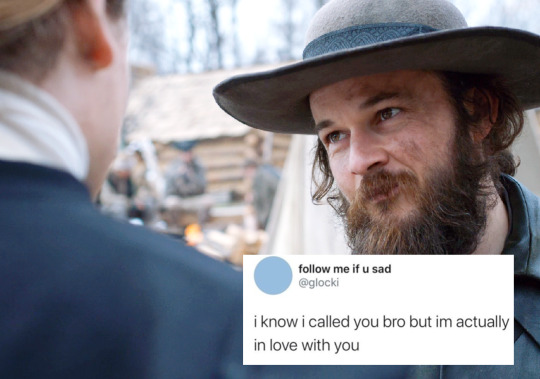
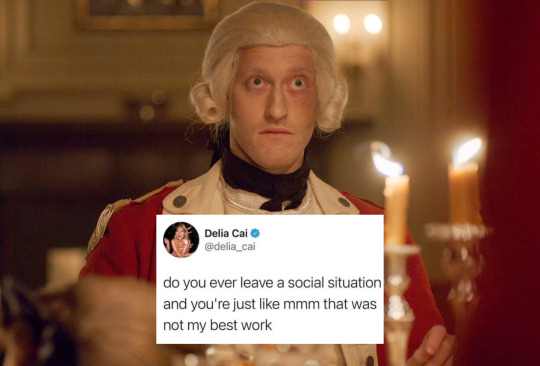
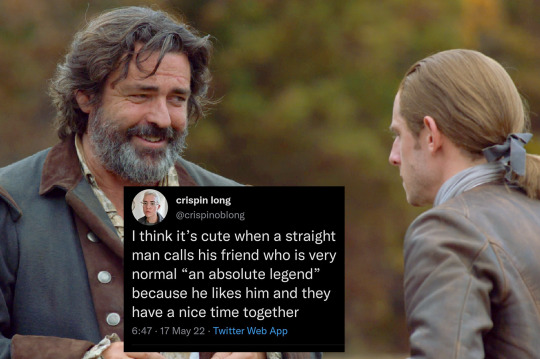
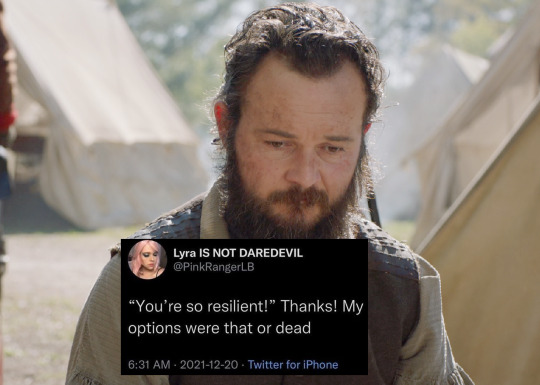
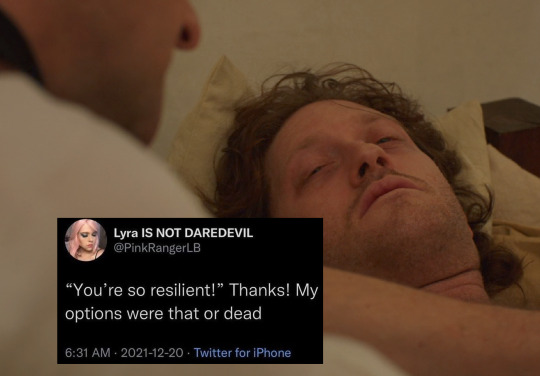
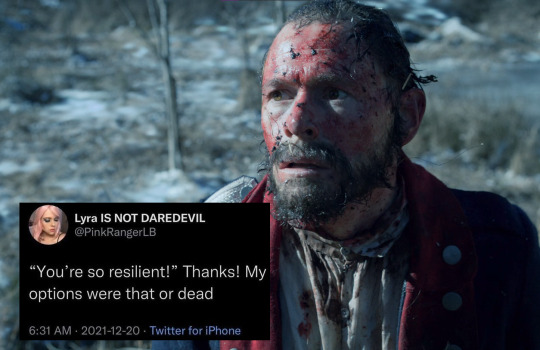


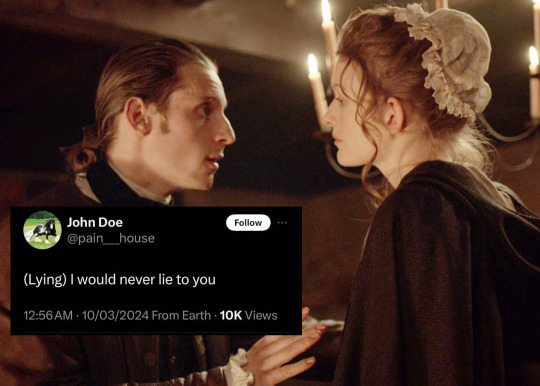

turnposting: tweets edition
#first post on my turn sideblog! :)#memes from the void#turnposting#turnposting from the void#turn amc#turn washington's spies#turn: washington's spies#amc turn#john graves simcoe#samuel roukin#edmund hewlett#major hewlett#burn gorman#caleb brewster#daniel henshall#robert rogers#angus macfadyen#abraham woodhull#abe woodhull#jamie bell#john andre#john andré#jj feild#anna strong#heather lind#mary woodhull#meegan warner
72 notes
·
View notes
Text
Robert Reich's Substack:
Friends,
For years, conservatives have railed against what they call the “administrative state” and denounced regulations.
But let’s be clear. When they speak of the “administrative state,” they’re talking about agencies tasked with protecting the public from corporations that seek profits at the expense of the health, safety, and pocketbooks of average Americans.
Regulations are the means by which agencies translate broad legal mandates into practical guardrails.
Substitute the word “protection” for “regulation” and you get a more accurate picture of who has benefited — consumers, workers, and average people needing clean air and clean water.
Substitute “corporate legal movement” for the “conservative legal movement” and you see who’s really mobilizing, and for what purpose.
**
[...]
Last week, the Supreme Court made it much harder for the FTC, the Labor Department, and dozens of other agencies — ranging from the Environmental Protection Agency to the Food and Drug Administration, Securities and Exchange Commission, Occupational Safety and Health Administration, Consumer Financial Protection Bureau, and National Highway and Safety Administration — to protect Americans from corporate misconduct.
On Thursday, the six Republican-appointed justices eliminated the ability of these agencies to enforce their rules through in-house tribunals, rather than go through the far more costly and laborious process of suing corporations in federal courts before juries.
On Friday, the justices overturned a 40-year-old precedent requiring courts to defer to the expertise of these agencies in interpreting the law, thereby opening the agencies to countless corporate lawsuits alleging that Congress did not authorize the agencies to go after specific corporate wrongdoing.
In recent years, the court’s majority has also made it easier for corporations to sue agencies and get public protections overturned. The so-called “major questions doctrine” holds that judges should nullify regulations that have a significant impact on corporate profits if Congress was not sufficiently clear in authorizing them.
[...]
In 1971, the U.S. Chamber of Commerce, then a modest business group in Washington, D.C., asked Lewis Powell, then an attorney in Richmond, Virginia, to recommend actions corporations should take in response to the rising tide of public protections (that is, regulations).
Powell’s memo — distributed widely to Chamber members — said corporations were “under broad attack” from consumer, labor, and environmental groups.
In reality, these groups were doing nothing more than enforcing the implicit social contract that had emerged at the end of World War II, ensuring that corporations be responsive to all their stakeholders — not just shareholders but also their workers, consumers, and the environment.
[...]
The so-called “conservative legal movement” of young lawyers who came of age working for Ronald Reagan — including Chief Justice John G. Roberts Jr. and Justices Clarence Thomas and Samuel A. Alito Jr. — were in reality part of this corporate legal movement. And they still are.
Trump’s three appointments to the Supreme Court emerged from the same corporate legal movement.
The next victory of the corporate legal movement will occur if and when the Supreme Court accepts a broad interpretation of the so-called “non-delegation doctrine.”
Under this theory of the Constitution, the courts should not uphold any regulation in which Congress has delegated its lawmaking authority to agencies charged with protecting the public. If accepted by the court, this would mark the end of all regulations — that is, all public protections not expressly contained in statutes — and the final triumph of Lewis Powell’s vision.
Robert Reich wrote an interesting Substack piece on the history of the right-wing war on regulatory power that began with the infamous Powell Memo by Lewis Powell, and culminated with the recent Loper Bright Enterprises, Jarkesy, and Trump rulings.
#Robert Reich#SCOTUS#Courts#Leonard Leo#Lewis Powell#Judicial Activism#Major Questions Doctrine#Loper Bright Enterprises v. Raimondo#SEC v. Jarkesy#Powell Memo#Nondelegation Doctrine#John Roberts#Samuel Alito#Clarence Thomas#Regulatory Powers#Trump v. United States
68 notes
·
View notes
Text
Reading Guide
An as-good-as-done, continuously updating guide to Jon Kent! I've listed most of his appearances in chronological order (anything missing now is minor stuff), and will continue to update the guide as needed*:
*At the moment I'm planning to make a more compact guide, maybe with just the stories I deem essential or my favourite stories overall for anyone intimidated by 300 issues (even if, in the grand scheme of comics, that's not actually all that much).
I will also, of course (hopefully), add new issues as they they come out.
#i know i just posted an update to this this afternoon but i honestly didn't expect to be done with this by tonight#i forgot jon's been very absent since beast world/in the lead up to absolute power#there's probably a cameo somewhere i've missed but he hasn't had any major appearances since the pride special i think#dc#dc comics#jon kent#jonathan kent#jonathan samuel kent#superman#superboy#reading guide#reading list
85 notes
·
View notes
Text
If Goo really dies and Gun is responsible, I hope DG kills him. This is ridiculous.
#gungoo#lookism#jong gun#lookism goo#lookism gun#jake kim#samuel seo#goo kim#gun park#daniel park#dg#diego kang#lookism 514#gun has major plot armor#theres no way#doomed yaoi
50 notes
·
View notes
Text
we need to discuss the thematic ramifications of referencing waiting for godot in iwtv right now or i'll go insane. godot is hope. godot never comes. vladimir and estragon can't kill themselves because then they'd be alone on stage. "Well, shall we go?" "Yes, let's go". but "they do not move". hello. can anybody hear me.
#interview with the vampire#iwtv#they put samuel inside le théâtre du Grand Guignol#im so normal abt all this. as an actor and english literature major.#also hello lestat#siv speaks
48 notes
·
View notes
Text
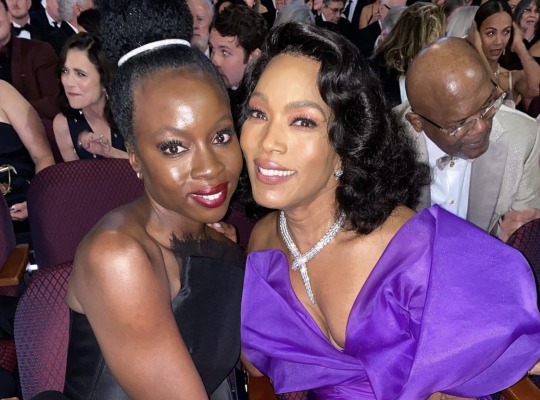




Angela at the oscars!
#angela bassett#michelle yeoh#michael b. jordan#danai gurira#jonathan majors#samuel l. jackson#austin butler#fashion#oscars
296 notes
·
View notes
Text
Revenge with a vengeance — The tragedy of Sam and Raiden’s canon relationship dynamic
Alternate title: SamuRaiden is THAT deep, actually.
Side note by author: This essay will get an update eventually since I wrote it before playing the Japanese version of the game.
Although MGR does not have as complex or well researched character lore as the main series, Samuraiden as a relationship is a lot more complex than common fandom tropes and interpretations of their relationship suggest.
I don’t mind it when people make funny/meme content about these two, since MGS/R does come with its own flair of humour, it’s very exhausting for me as well as a few others I know who enjoy this ship for it to be reduced to just that — a joke.
MGR being perceived as ‘goofy’ is mainly due to how poorly some of the character lines translate from Japanese to English, as well as it being more or less evident that either budget, time or both ran out over the course of development, hence the second half of the game feels rushed and underdeveloped. In fact, the great majority of MGR fans do not understand how serious, dark, hopeless and dystopian its message really is and that is saddening.
The world isn’t black and white, neither is it in MGS/R.
Sam isn’t the just the villain (never has been, by the way), Raiden isn’t the just the hero (never has been either, by the way), I’d say it’s rather “depends on who you ask”.
They are on opposite sides due to the circumstances of how they meet and not because they wouldn’t get along. Quite the opposite is true, in fact, if they would have met before 2016, they might have become friends based on the fact of how much they can actually relate to each other in many different aspects of their personalities, interests and experiences.
Before we get to fight Armstrong as well as during the Sam DLC (also through very subtle hints during their first fight on the train) we learn that Sam is just like Raiden and that Desperado forced him to become a shadow of who he once was, going against his own morals and values and only Raiden reminding him of who he truly was before Armstrong defeated him 2 years prior, ultimately crushing his spirit — he had no other choice, either die there as a failure or continue to live and become Desperado’s/Armstrong’s puppet [until someone would eventually defeat Armstrong and free Sam from his never ending nightmare — Did I already mention that Sam is a really fucking tragic character?].
Sam joining Armstrong’s laughter at the end of DLC is a reaction of fear, not agreement with him or enjoyment. And if there’s one thing that both MGS and MGR are really good at, it’s the accurate and very realistic portrayal of the human psyche under stressful and traumatic situations.
On the other side we can tell from Raiden’s reaction when holding Murasama after killing Sam that he, for once in the entire damn series, questions if that was the right choice he made.
We know that Raiden enjoys inflicting pain and suffering onto others, he enjoys murder — but he did not feel that way when he killed Sam. It’s quite the opposite.
It’s very subtle and if you’re not very observant like me, easy to miss. But the way his voice turns a bit softer, how his eyes look listless, almost sad; he regrets it.
When Blade Wolf asks Raiden if that outcome was really necessary, he does not answer him, because he knows that Wolf is right, it wasn’t. And Raiden pretty much hates himself for it.
To his team he confidently says that Sam isn’t a problem anymore since he killed him, but that’s not the same Raiden that he’s that moment in the badlands (which is another implication to me that Raiden doesn’t fully trust his teammates, although they are friends; he has major trust issues and the only emotions he shares with them is either anger or amusement but nothing outside of that).
The way he sheathes Murasama is a way to honour him, and as far as I remember this is a ritual to honour a samurai’s defeat or death.
I believe that there has been a silent understanding between the two swordsmen that they respect each other from the very beginning, but they do not say it out loud.
This is a case of “show, don’t tell” but also something I suspect has something to do with the game being written by Japanese authors, and Japanese is a high context language, meaning, very little words are needed to get the meaning across, and I think this may also translate into the words these two exchange with each other compared to how they truly feel about the other.
Besides, they probably couldn’t truly speak honestly with each other in the first place because of the unfortunate conditions of how they met and were (more or less) forced to fight each other until one of them would eventually succumb to the other’s blade. Codecs and conversations were most likely recorded by their respective employers, and I highly suspect that in Sam’s case, he was even monitored 24/7 by Desperado since he never was an official member of the Winds of Destruction in the first place, and they didn’t fully trust him either.
At the very end of the game during the fight with Armstrong, Sam’s message plays, and we can hear how Sam also speaks with a different voice to Blade Wolf compared to everyone else (and technically, indirectly to Raiden but I cannot confirm or deny that Sam was aware that Raiden would ever hear this playback), it’s a note softer; Raiden learns the truth, which confirms to him that he was right about Sam after all, that they are alike, that they respect each other, and that there was more to Sam’s story than him being a part of Desperado, he doesn’t know what exactly, but he knows now for sure that Sam was not the person he originally believed he was (and lets his team still believe he thinks that way).
Would Raiden truly say Sam’s catchphrase “Let’s dance” before fighting and ultimately killing Armstrong, if he wouldn’t have been going through a gradual process between originally hating Sam to respecting and liking him but unable to ever express that to him or anyone else?
Would he ever admit to anyone what kind of emotional impact Sam had on him, besides the anger and hatred he openly expressed towards him?
Doubt so. Highly fucking doubt so.
Because sharing his true feelings is a liability to him, and Raiden learnt as a very young child that vulnerable feelings such as sadness or guilt would be used against him, so his psyche is conditioned to discard them immediately. But Sam made him feel those things in their full extent and Raiden is fully aware of that, but he would never share with anybody that he ever felt that way about Sam.
He may or may not take those feelings to his grave.
From Sam’s side, we can only guess how he truly felt about Raiden, but we can only guess by the way he hesitated to finish him off on the train during the prologue, the way he smiled at Blade Wolf before his death (which might be likely another case of a silent understanding between Sam and Wolf that the latter would share with Raiden what he knows about Sam or the playback of their conversation itself, if not both) as well as everything he says with giving Murasama to Raiden. Of course, Sam couldn’t even say out loud to Blade Wolf or Raiden that he planned to give Raiden his sword to take down Armstrong, and he had to be as vague as possible with the information that he shared with the robot dog. Not by choice, no. Most likely because he was being watched 24/7, he knew that Desperado nor Armstrong didn’t fully trust him and if they knew about his plans, they’d make sure to finish him off before Raiden had the chance to do so.
Sam knew he would die, and that it would be the only way he would ever be free from Armstrong’s grasp. So he chose suicide through Raiden’s blade, and gave him his sword to finish what he could not back then.
The game’s title is REVENGEANCE — Revenge with a vengeance.
They both translate to the same thing in my native language German, but there’s a subtle yet important difference between these two nouns.
“Revenge means when you get back at your enemy who is responsible for hurting you and vengeance is the punishment inflicted or retribution exacted for an injury or wrong.”
But it was never Armstrong who hurt or wronged Raiden in the first place, and we know he’s an essentially selfish person who does not really care all that much about politics, religion or anything like that and he only fights for himself (I wrote in my essay about Raiden’s ASPD that his motivation to save these children from becoming cyborg child soldiers is a trauma response first and his rather lose and grey morality second) and the few people he cares about, so Armstrong being the one one who ordered to get N’mani killed is not the reason Raiden went after him or was that passionate about getting revenge or retribution on him either.
It was Sam who hurt him — wounded both his body and soul during the prologue — but when Raiden got his revenge, he realised that revenge is empty, that he didn’t feel better, and that he regrets killing him, then we get to the vengeance part.
From the moment Raiden held Sam’s Murasama in the badlands, he felt no more hatred towards him and the emotional impact his death had on him made Sam transition from a person he hated to one of the few people Raiden truly cares about.
Armstrong may be the villain of the story, but the person who wanted revenge on him never had been Raiden. It was Sam. Always had been Sam, because it was Sam who got hurt by Armstrong, it was Sam who wanted to get revenge on Armstrong for defeating him and crushing his spirit, it was Sam who wanted to punish Armstrong for making him into a shadow of who he once was, making Sam speak about ideals he didn’t truly believe in (like, who the FUCK even thinks that Sam truly believed a single fucking word of that, because I for sure as hell can tell he never did, he either gaslit himself into believing that for 2 years until he met Raiden or only parroted whatever the fuck Armstrong wanted him to say so he would not get killed on the spot).
Revenge and vengeance are very deep feelings and actions of hatred, feelings that are too deep and complex to be associated with morality, hence why I highly doubt that the title of the game is directed at Armstrong from Raiden’s side at all. That between Raiden and Armstrong is not nearly as personal as it has been between Sam and Armstrong.
Raiden eradicating Desperado and Armstrong had been about justice [for the kids being killed and their organs sold], not revenge.
"I said my sword was a tool of justice. Not used in anger. Not used for vengeance. But now… Now I'm not so sure. And besides, this isn't my sword."
But when he says this, followed by “Let’s dance”, it became deeply personal for Raiden as well. Because he could confirm that his feelings about Sam had been right, and that Sam wanted to get revenge on Armstrong.
Raiden decides to avenge him, because Sam couldn’t get revenge himself.
Although Sam never told him directly, Raiden understood him from his actions alone, those subtle hints, reading between the lines what the other truly felt and wanted the whole time, eventually passing the “torch” — his sword — to Raiden, to finish what he could not.
So while Raiden’s own reasons to finish off Armstrong were (mostly) justice for the innocent lives he destroyed and planned to continue to destroy, they also became feelings of hatred and anger — Sam’s feelings towards Armstrong.
In the end — revenge with a vengeance — is what Sam could get on Armstrong only through Raiden, after Raiden enacted his onto Sam.
Now the question is — if Raiden would’ve never killed Sam, by the chance of him recognising earlier than in canon that revenge is empty and that he won’t feel better after killing him, would Sam go by his example and abandon his revenge plans on Armstrong as well?
Or would they fight Armstrong together and get justice?
We unfortunately can only speculate (or write stories about it).
What we can tell from canon though, is that Raiden’s (= Sam’s) passionate feelings of hatred towards Armstrong quickly vanish the moment he finished him off, and he looks into the camera with an empty expression, covered in blood and a crushed cybernetic heart in his hand.
And I think that is exactly what he feels — empty.
Because again, he got revenge and avenged Sam, led by what Sam felt, Sam’s feelings became Raiden’s feelings during that fight with Armstrong. But once that was gone, there’s nothing left. In the case of killing Armstrong, he doesn’t feel remorse or guilt. There’s nothing. Absolutely nothing.
Because revenge is empty.
Raiden defeated his enemies — but at what cost?
By killing Sam, he realised what he had actually lost — a potential friend (or more), someone who understood him in a way that no one else did.
Perhaps he thought or felt that, if he avenges Sam, making Sam’s feelings towards Armstrong into his own, he might be able to deal with that loss better, but to no avail.
Because, and I can speak from experience as a person with the same mental health issues as Raiden, that emptiness is worse than regret.
MGR’s ending also implies that Raiden abandons his family and friends to fight his own war; essentially taking the same path that Sam once took in his past, ending up in a personal war and revenge act that knows no end, making one bad choice after the next. If Raiden hasn’t already become the villain of his own story by the end of MGR, then it’s just a matter of time until he becomes that.
And the cycle of violence continues, until the story repeats itself, over and over and over and over and over.
Did I mention already that there is a myth around Murasama being a cursed sword, that will drive its user either slowly insane or make them commit suicide if it doesn’t get a regular ‘blood sacrifice’?
—
“I really enjoy murder, but that one, that I will regret for the rest of my life.”
#Samuraiden#samurai#samrai#mgr#raiden#jetstream sam#mgrr#Raiden mgr#Raiden mgs#Raiden mgrr#Samuel Rodrigues#metal gear rising#metal gear rising revengeance#metal gear solid#mgs#golden essays#golden writing#anyway I went a little bit INSANE last night and wrote this#basically Samuraiden is at least platonically canon#and MGR is really fucking dark and depressing#BUT THE MAJORITY OF MGR FANS DON’T FUCKING GET THAT#anyway#suffer with me
217 notes
·
View notes
Text
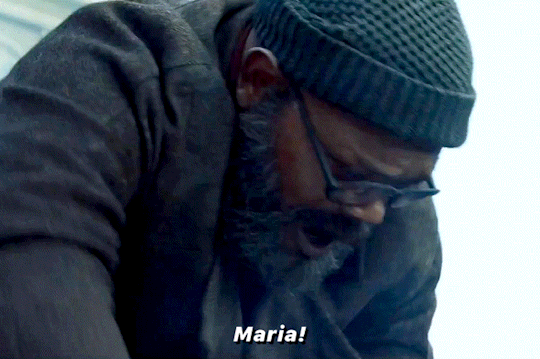




michael scott screaming no-no-god-please-no.gif
#whumpedit#marveledit#secretinvasionedit#whump#secret invasion#secret invasion spoilers#maria hill#nick fury#cobie smulders#samuel l jackson#1x01#blood#shot#pain#fear#tears#cradled#major character death#grief#my gifs#when maria thought nick shot her *sobs*#THIS WAS NOT SUPPOSED TO HAPPEN TF!#kevin feige you will pay for your crimes#when they announced the show and they mentioned she was playing a big part in it only for her story to end up like this… im actually sick#it says she is in all six episodes(??) but i thiiiiiiink it flashback scenes! unless they pull a phil-coulson (yeah im being delulu)
156 notes
·
View notes
Text




lookism otd : four major crews + pixel horror
#government mandated crewhead posting#lookism#lookism webtoon#lookism manhwa#lookism headcanons#jake kim#samuel seo#eli jang#johan seong#seong yohan#jang hyun#kim gimyung#seo seongun#the four major crews#4 major crews lookism
24 notes
·
View notes
Photo
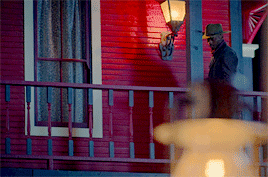

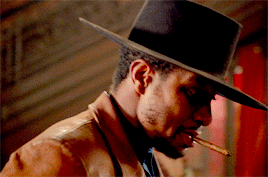
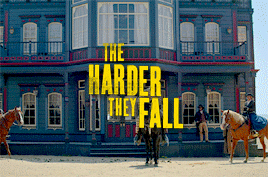


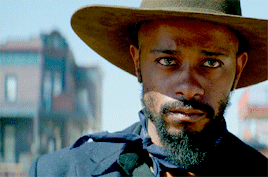
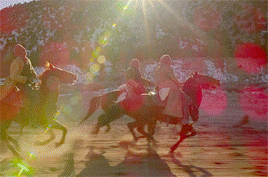


The Harder They Fall (2021)
#The Harder They Fall#filmedit#Jonathan Majors#Idris Elba#Zazie Beetz#LaKeith Stanfield#RJ Cyler#Jeymes Samuel#my gifs#movie gifs
318 notes
·
View notes
Text
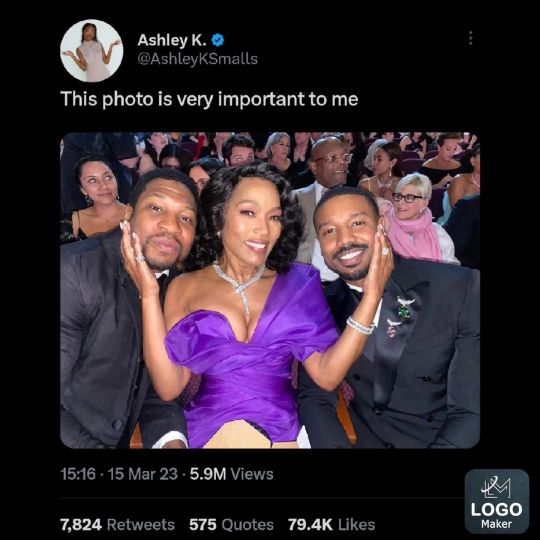




#Repost @inblackcommunity
——
We got ourselves a movie #jonathanmajors #angelabassett #michaelbjordan #samuelljackson
211 notes
·
View notes
Text
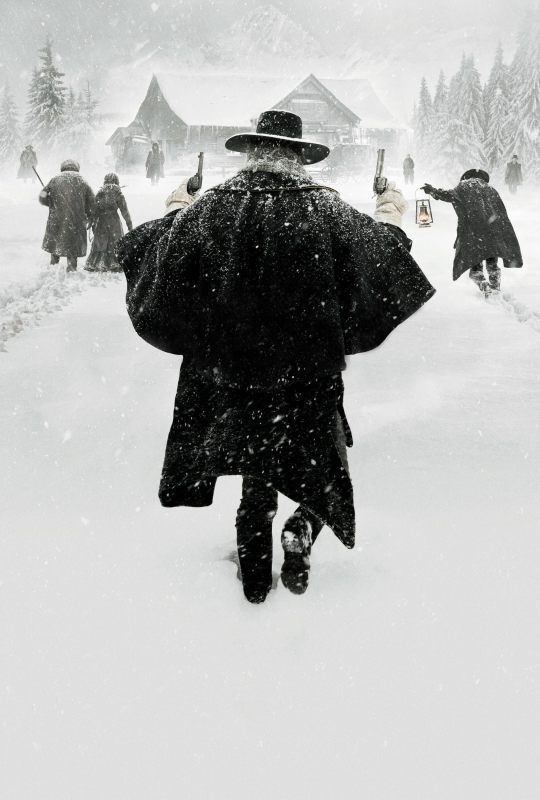
The Hateful Eight (2015)
#2015#film#movie#western#The Hateful Eight#Quentin Tarantino#Kurt Russell#John Ruth#Jennifer Jason Leigh#Daisy Domergue#Demian Bichir#Bob#Michael Madsen#Joe Gage#Samuel L. Jackson#Major Marquis Warren#Marquis Warren#Bruce Dern#General Sandy Smithers#Sandy Smithers#Walton Goggins#Sheriff Chris Mannix#Chris Mannix#Tim Roth#Oswaldo Mobray#Channing Tatum#Jody#Minnie's Haberdashery#Wyoming#Remington 1858
37 notes
·
View notes
Text
‼️ LOOKISM CH. 472 SPOILER ‼️
when the JAKEMUEL ship name finally makes sense (ah to be bridal carried by jakey 🥰)

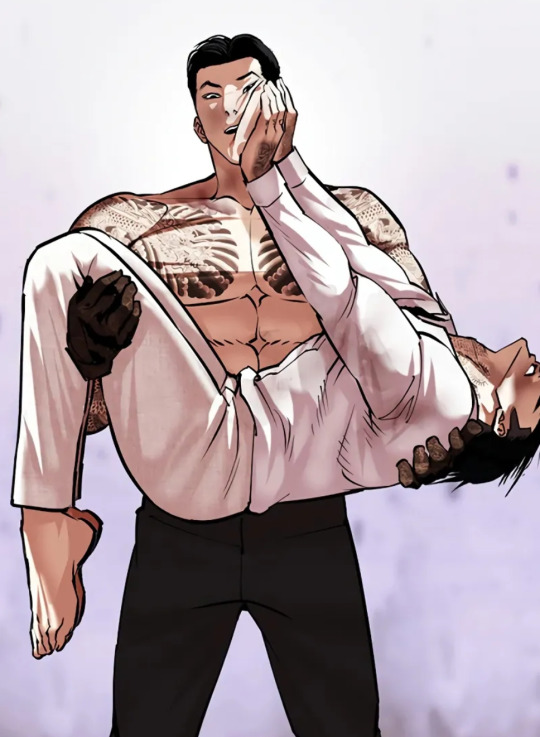
sammy slander: even the characters do it
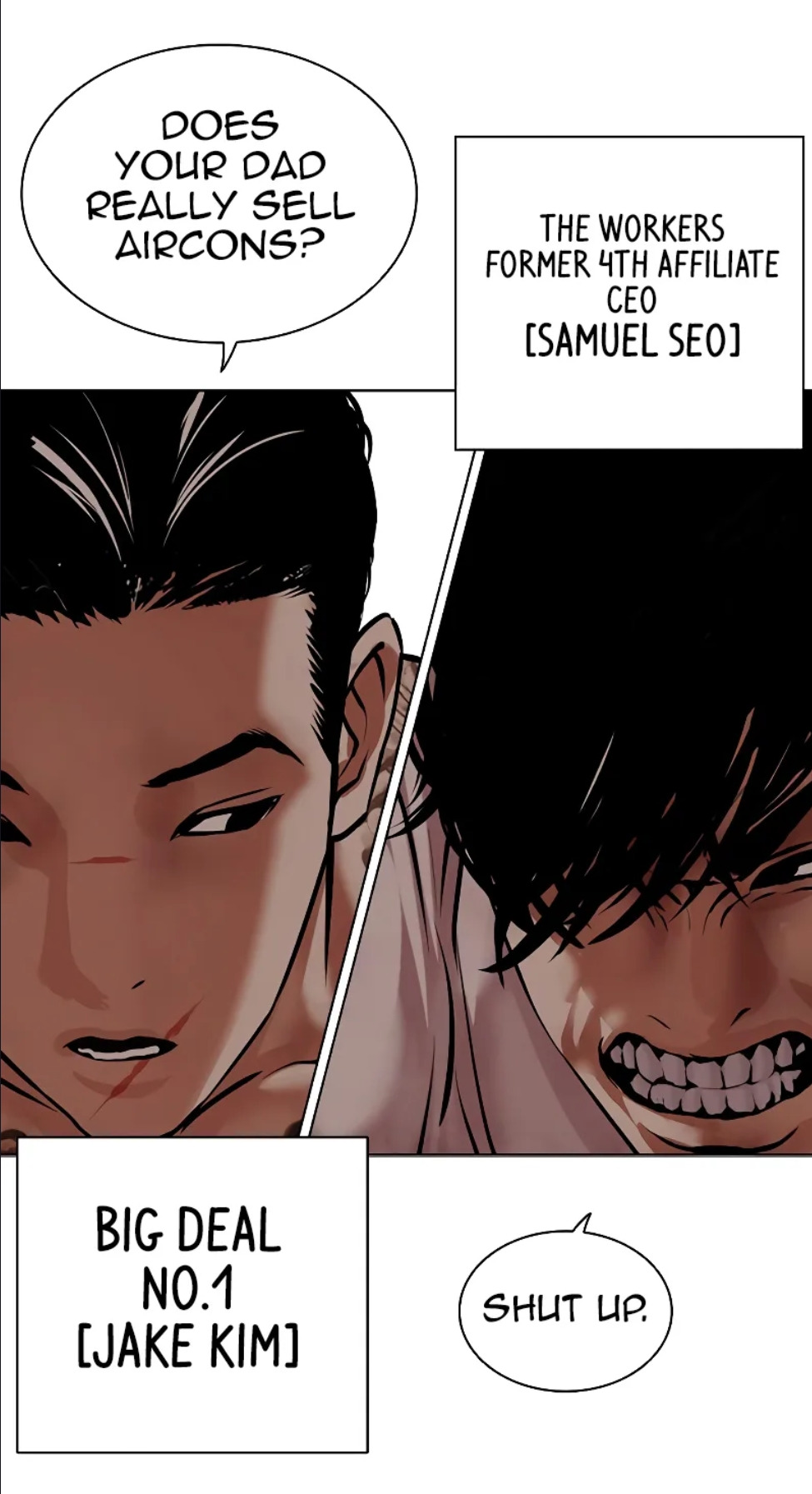
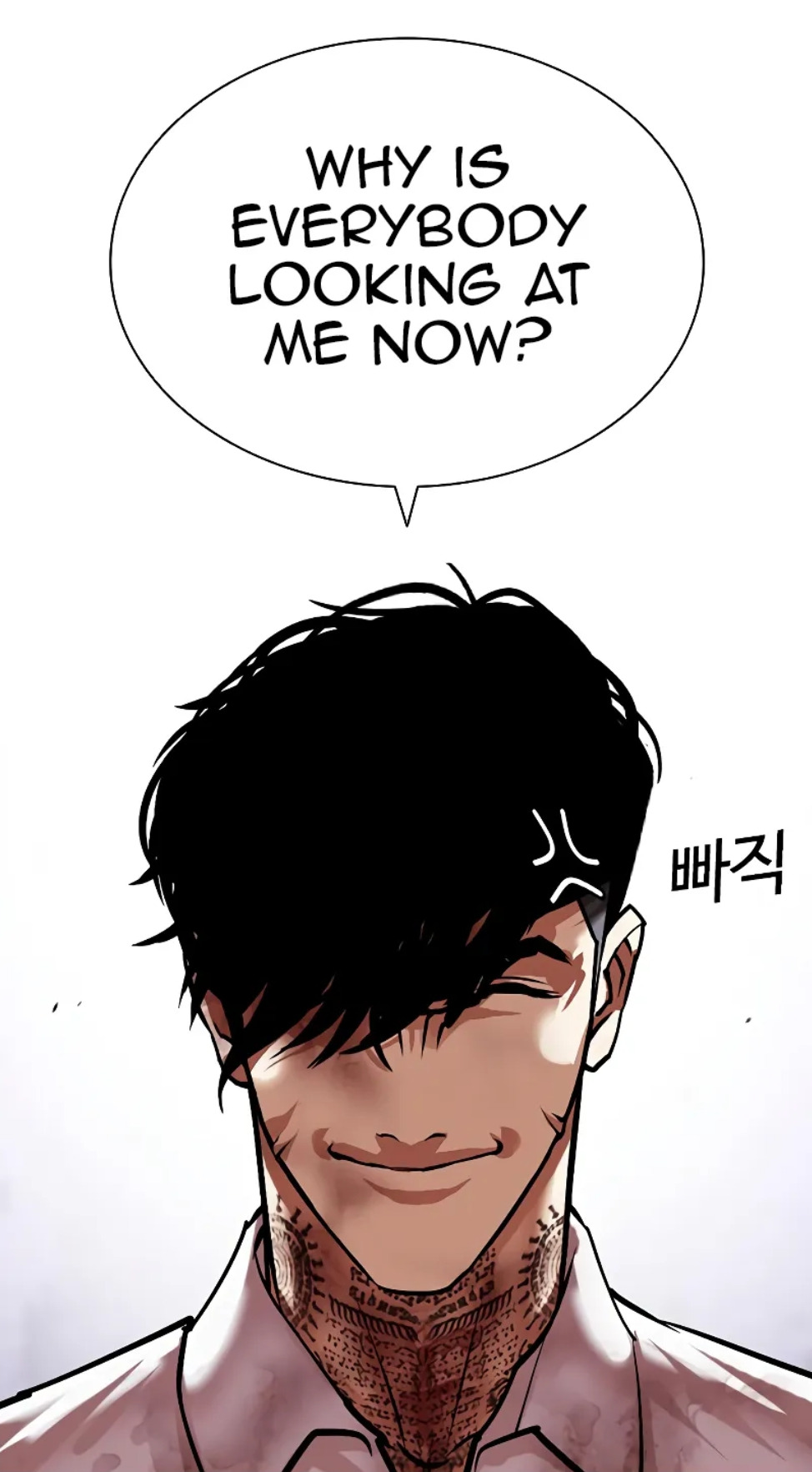
GOO!!! PTJ shamelessly inserted gun in previous chapters so he could pull this for goo bear lmao
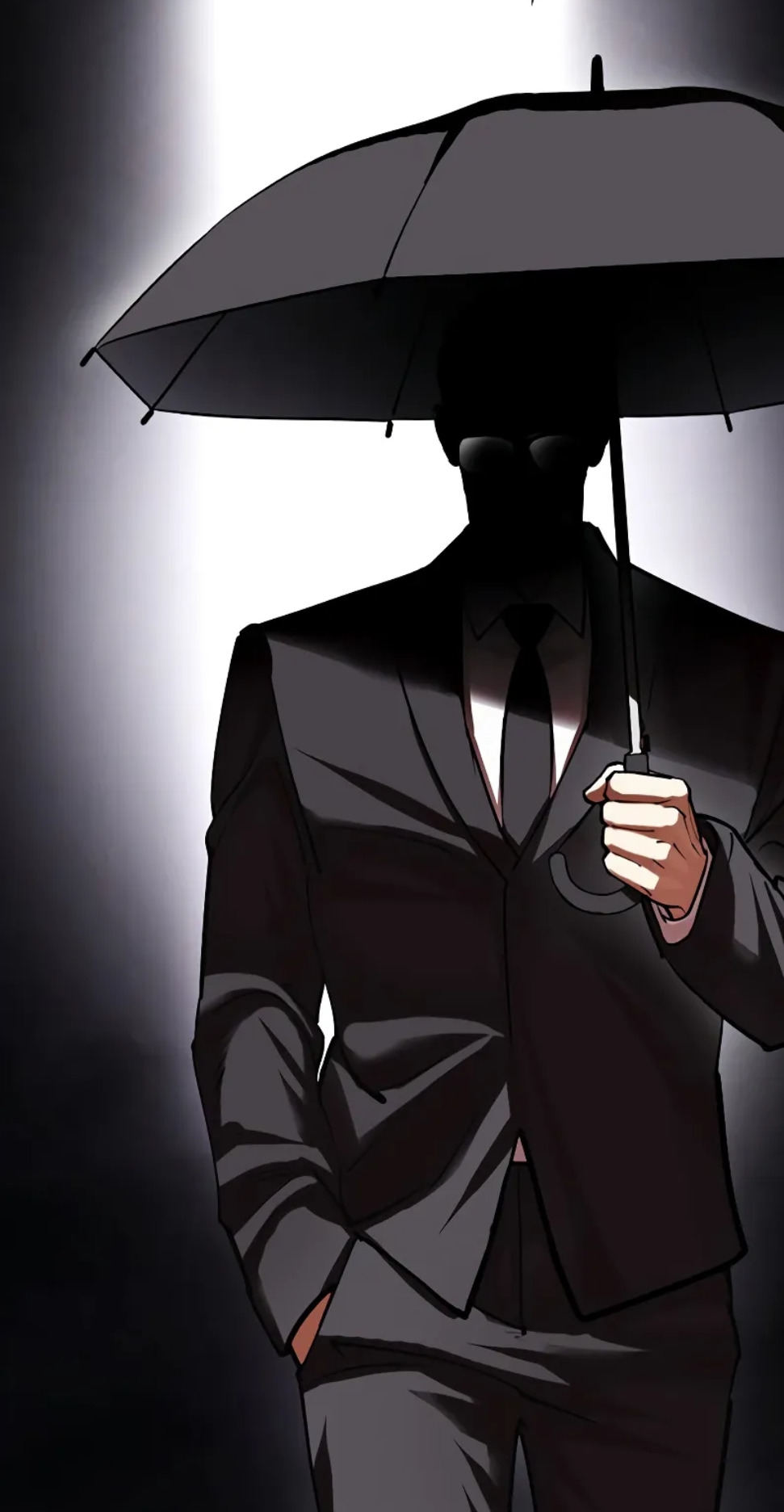


^this boy gonna help his secret friend, y'all sammy slanderers better watch out!
#so so love this chapter!#more major crew heads interactions pls 🥺#lookism#lookism spoilers#lookism 472#samuel seo#seo seongeun#jake kim#kim gimyung#goo kim#kim joongoo
81 notes
·
View notes
Text
August 2024 Deal Announcements
Adult Fiction
Mary E. Roach‘s WE ARE THE MATCH, pitched as a sapphic reimagining of the Helen of Troy myth set in modern-day mobster Greece, in which Helen is the daughter of a powerful crime lord and Paris is the woman hell-bent on destroying her—if they don’t fall for each other first, to Lauren Plude at Montlake, for publication in summer 2025, by Claire Friedman at Inkwell Management…
#Amy Berkower#Andrews McNeel#Anna Cowan#Claire Friedman#Dutton#Holiday House#Inklore#Isadora Zeferino#Ivy Noelle Weir#Jonah Newman#Kate McKean#King&039;s Maker#Mia Tsai#No Charm Done#Pete Knap#Queer#Rose Black#Samuel Clowes#Steve Majors#Sydney Langford#The Duke#The Great Gatsby#Tori Anne Martin#Vicki Lame
17 notes
·
View notes